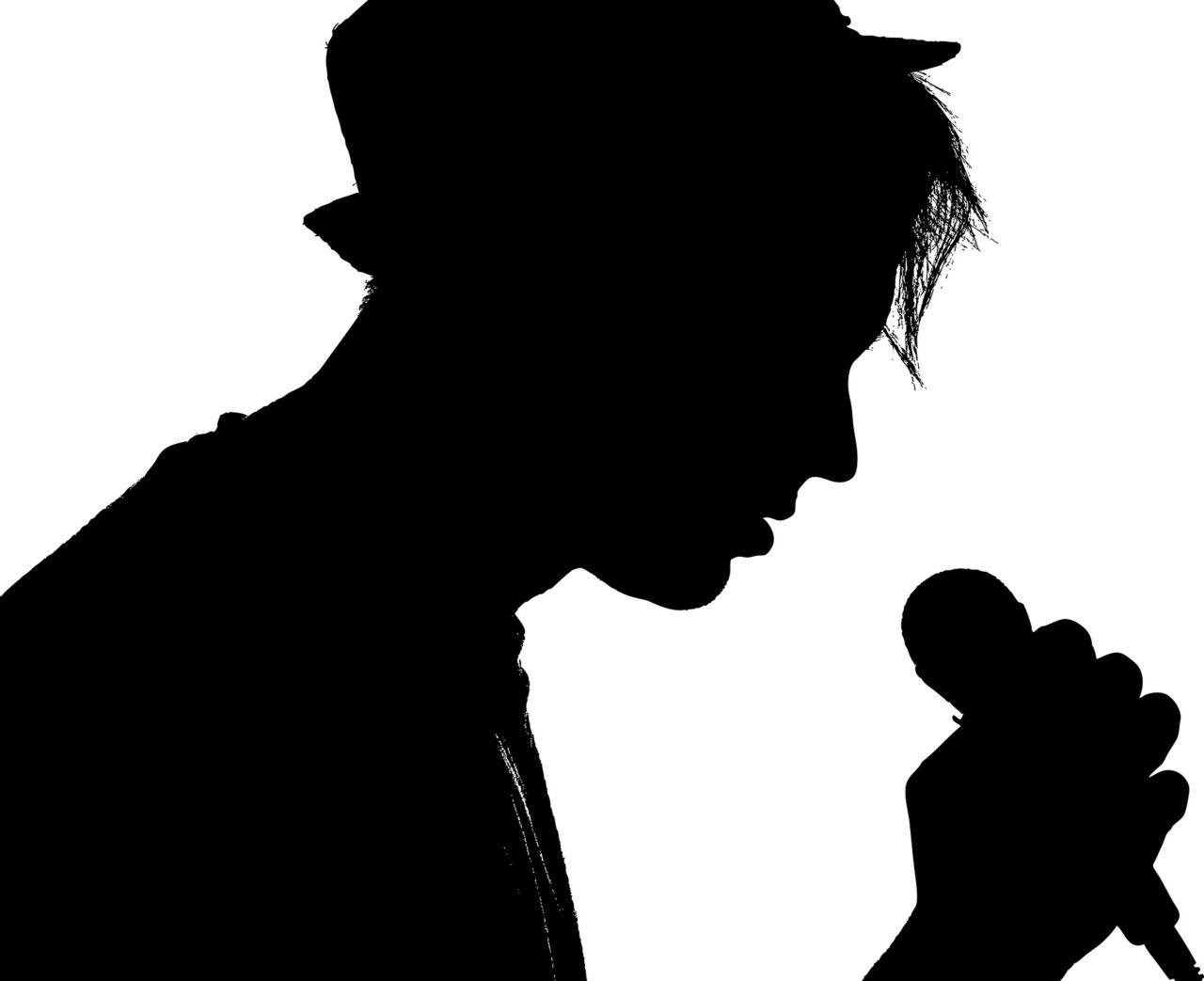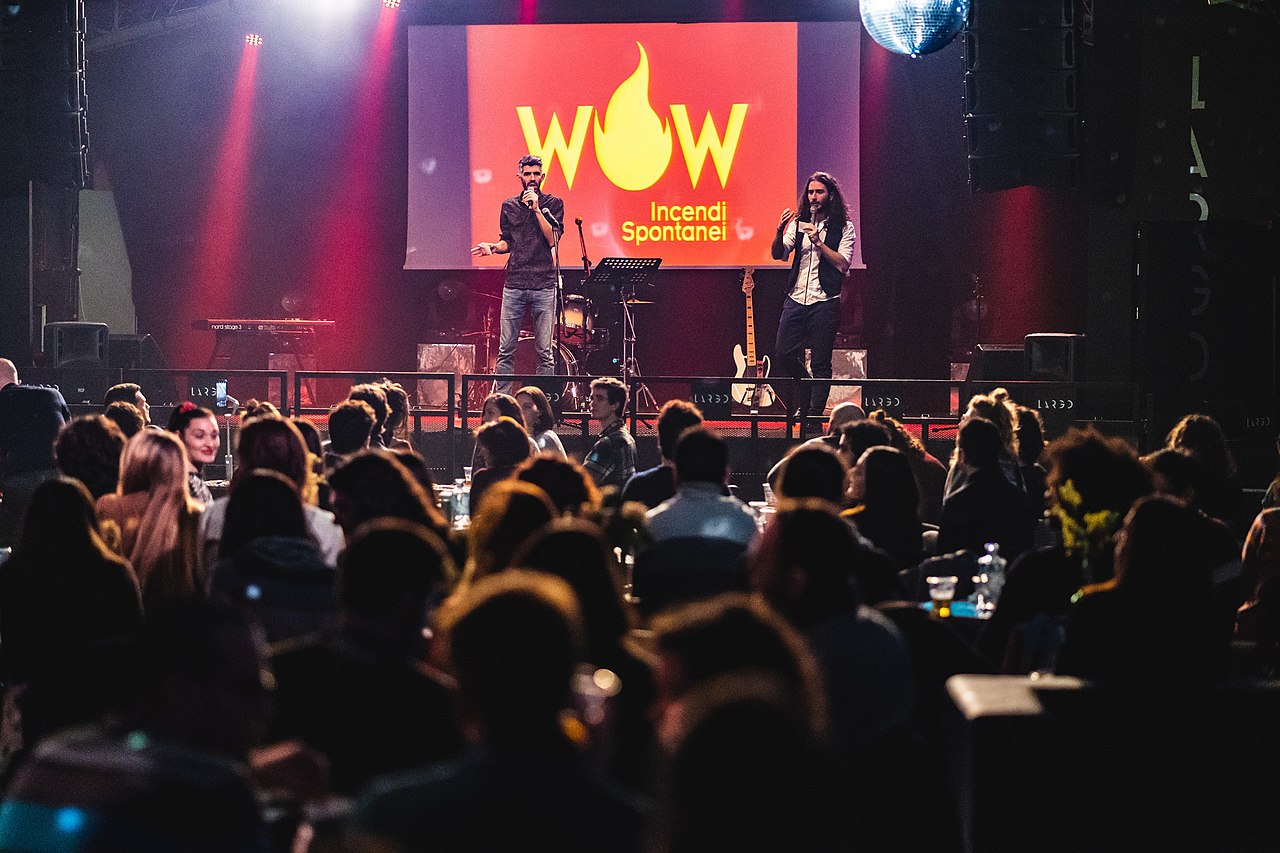
If we think of poetry, we are likely to recall memories of classrooms, perhaps mighty anthologies studied with little enthusiasm... The mind is unlikely to associate poetry with a pub, a jazz club, or a community centre. Yet, for the past few decades, poets of all ages and walks of life have been filling venues all over the world precisely by challenging each other to verse. These evenings are called 'poetry slams' or more simply 'slams'.: real competitions in which poets compete in performance with their poems. On the occasion of the 'European Researchers' Night', the Bright Night, in September, the IMT School will also host a poetry slam: on this occasion, with a scientific theme. In the meantime, we tell you its story.
This form of art and performance is the brainchild of Mark Kelly Smith, an American ex-worker and poet, who started organising open-mic nights at jazz clubs in the 1980s Get Me High Lounge in Chicago, inviting artists to bring poems they had written to the stage and recite them in their own style. The reading evenings then took the form of real challenges, moving to the Green Mill Tavern, another Chicago jazz club where poetry slam evenings are still held today. Since then, the slam scene has never stopped growing: it first infected the entire United States and then, one club at a time, the rest of the world.
In Italy, the first poetry slam was organised in 2002 by poet and performer Lello Voce in the context of the festival Romapoetry. Then, in 2013, the Italian Poetry Slam League (LIPS) was born, which is responsible for bringing together poets and collectives scattered across the territory, and for coordinating the organisation of regional tournaments that feed into the national tournament that elects Italy's representatives at international tournaments every year. On a small patriotic note: Italy boasts three champions of the Coupe du Monde held every year in Paris: Julian Logos, Lorenzo Maragoni e Filippo Capobianco. Over the years LIPS members have increased, and especially since 2022 with the possibility of returning to public places after the pandemic, the number of events organised throughout Italy between poetry slams, open-mics, themed evenings and shows has grown exponentially. This is a sign of how much people want to get back to community, and how slam poetry can be a powerful means of connecting and sharing: from being a pastime for bookworms, poetry becomes a way to spend a Friday night with friends. That was Mark Kelly Smith's stated aim, to give poetry back to ordinary people: "we need to speak poetically to each other. It is the way we communicate our values, our hearts and all the things we have learnt that make us who we are'.

Participation is 'simple' and democratic. Anyone can impersonate their texts in a poetry slam. The audience is usually very close to the poet (or slammer, as it is called among the frequenters), immersed in a cosy, almost familiar context, where the poets mingle with the spectators between one beer and another and the proximity, physical as well as emotional, does not cool the dialogue between the parties. In this context, poetry takes on new forms and substances for each person who approaches the microphone, it does not need paraphrases or unfamiliar linguistic registers: it wants to be heard before it is understood.
La marvel is the feeling one usually gets at a slam, the wonder of not knowing what is going on until it is over, the wonder of a show that will never be repeated the same, not least because the people who participate build the evening as it happens, choosing whether to perform this or that piece. The wonder of the continuous amazement of seeing texts about death, social denunciation, love poems, political comedies, poems on how to dip biscuits in coffee or how great it is to dance techno, erotic poems, comic poems, poems in rhyme or loose verse, whispered poems or shouted poems, song pieces, rapped pieces, people jumping, people standing still, people doing what they want.
However, the poetry slam is also a competition, with rules: the texts must be written by the person who brings them to the stage, the performance time is three minutes maximum, only body and voice may be used, no props or costumes. These are three simple rules, and for the success of the evening they can also be broken in the end, because the truth is that the competition does not matter to poets, as Marc Kelly Smith says: 'the point is not the points, the point is the poem'.
The audience acts as the jury, the jurors are drawn from among those who attend, the performances are rated from one to ten, there are no objective criteria, only personal taste counts. The rest of the audience obviously does not have to remain silent, but rather to make their disappointment heard for a grade they consider low or to cheer for a more than deserved ten. In short, one cannot attend a poetry slam, one can only participate.
We know from our school days that for the Greeks, going to the theatre was a cathartic moment, for all people, not just the most erudite, and that plays were constructed so that they could be enjoyed by all. Attending a poetry slam, whether as a slammer or a spectator, is perhaps as close to that feeling as I have ever experienced. If the poetry slam has intrigued you, pay attention to the Bright Night programme, coming up in early September!